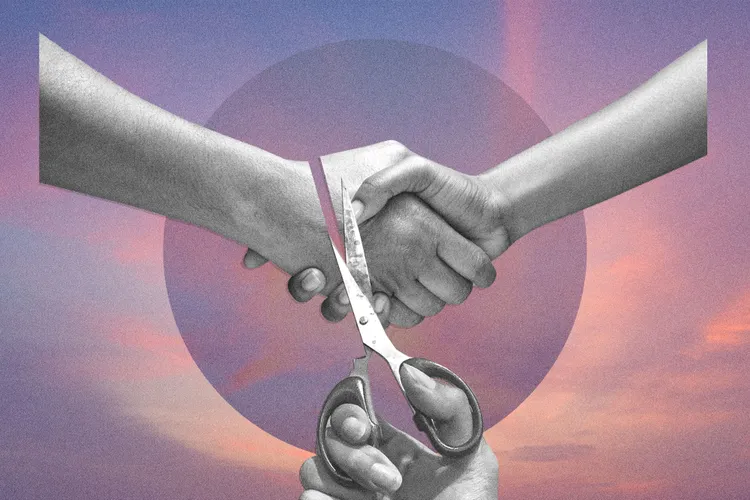
Losing a close friend can be one of the most painful experiences in life. Even though friendship breakups don’t always get the same attention as romantic breakups, the emotional impact can be just as intense—sometimes even more. In fact, science shows that when a friendship ends, your brain and body can react in ways very similar to how they would during grief after a death.
Let’s explore what happens inside your brain when a friendship falls apart, how it affects your emotions, and what you can do to heal.
Why Losing a Friend Hurts So Much
Friendships often form an important part of our identity. We share memories, milestones, and personal moments with our closest friends. So, when a long-term friendship ends, it can feel like losing a part of ourselves.
Studies have found that up to 70% of close friendships fade after seven years. A 2023 survey revealed that more than two-thirds of Americans have ended a friendship at some point. Clearly, this is something many people go through—but that doesn’t make it any easier.
1. Your Brain’s Threat System Activates
When you lose a close friend, your brain reacts as if you’re facing danger. The amygdala, the part of the brain that processes emotions and detects threats, becomes highly active.
According to neurologist Dr. Lisa Shulman, the amygdala “sounds the alarm” when emotional pain reaches a certain level. This sets off a wave of brain chemicals and hormones to prepare your body for defense. It’s your brain’s way of trying to protect you—even though the “threat” is emotional rather than physical.
2. Your Hormones Become Unbalanced
Friendship breakups can affect important brain chemicals like serotonin, dopamine, and norepinephrine.
-
Serotonin helps regulate mood and happiness. When it drops, you may feel low or hopeless.
-
Dopamine is linked to pleasure and motivation. A decrease can make it harder to enjoy things you normally love.
-
Norepinephrine is part of the stress response. High levels can make you feel anxious, restless, or on edge.
This hormonal imbalance is why you might notice changes in your mood, sleep, and even digestion after losing a friend.
3. Your Memory and Emotions Team Up—Sometimes Against You
The emotional brain can sometimes overpower the thinking brain after a breakup. Dr. Shulman explains that reminders of your friend—like a favorite song or a familiar place—can trigger powerful emotional memories. These can cause anxiety, sadness, or difficulty sleeping.
It’s not just “in your head.” Your brain is literally wired to hold onto emotionally charged memories more strongly, which can make moving on feel harder.
The Emotional Side of a Friendship Breakup
Ambiguous Grief
Unlike death, friendship breakups often don’t have a clear ending or closure. This can lead to something called ambiguous grief—mourning someone who is still alive but no longer part of your life. The uncertainty can make the loss even harder to process.
Feelings of Rejection
Friends fulfill deep needs for connection and belonging. Losing one can lead to feelings of rejection, loneliness, and self-doubt. It’s common to question your worth or replay events in your mind, wondering what went wrong.
Fear of Future Relationships
A painful breakup can make you wary of opening up to new friends. You might find yourself avoiding closeness to protect yourself from future hurt. While this is a natural reaction, it can lead to isolation if left unchecked.
How Losing a Friend Differs from Losing a Romantic Partner
From your brain’s point of view, the difference depends on the personal meaning of the relationship. Some friendships are deeply intimate and supportive—so their loss can feel as devastating as a romantic split, if not more.
Healing After a Friendship Breakup
Recovering from a friendship loss takes time and self-compassion. Here are some expert tips to help your brain and heart heal:
1. Allow Yourself to Grieve
Don’t minimize the loss just because it wasn’t romantic. Let yourself feel sad, angry, or even relieved. Acknowledge the memories and the role your friend played in your life.
2. Avoid the Blame Game
It’s tempting to assign blame—either to yourself or your friend—but this can keep you stuck. Instead, try to accept that the relationship no longer works. Ending doesn’t erase the good moments you shared.
3. Reflect with Curiosity
When you’re ready, look back on the friendship with an open mind. What worked well? What didn’t? Writing down your thoughts can help you spot patterns and set better boundaries in future friendships.
4. Define What You Want in New Friendships
Think about your values and needs. What qualities do you want in a close friend? Clarifying these can help you build healthier and more fulfilling connections going forward.
5. Rebuild Your Support System
Lean on your other friends, family, or community groups. Making new connections doesn’t replace the friend you lost, but it does help restore your sense of belonging. Building fresh bonds can give your brain new sources of joy and emotional security.
Your Brain’s Way of Healing
Grief is not just an emotional process—it’s your brain’s way of adapting to a big change. By processing the loss, your brain works to rebuild your sense of identity and form new social bonds. Over time, the pain lessens, and you can carry forward the lessons learned into future relationships.
Bottom line: A friendship breakup can shake you deeply, both emotionally and neurologically. Your brain reacts much like it does to other forms of grief—activating stress responses, altering hormone levels, and strengthening emotional memories. Understanding what’s happening inside your head can make the healing process feel a little less confusing.
Friendships may change or end, but the connections you build afterward can be just as meaningful. With time, reflection, and self-care, you can move forward—and perhaps even grow stronger from the experience.
